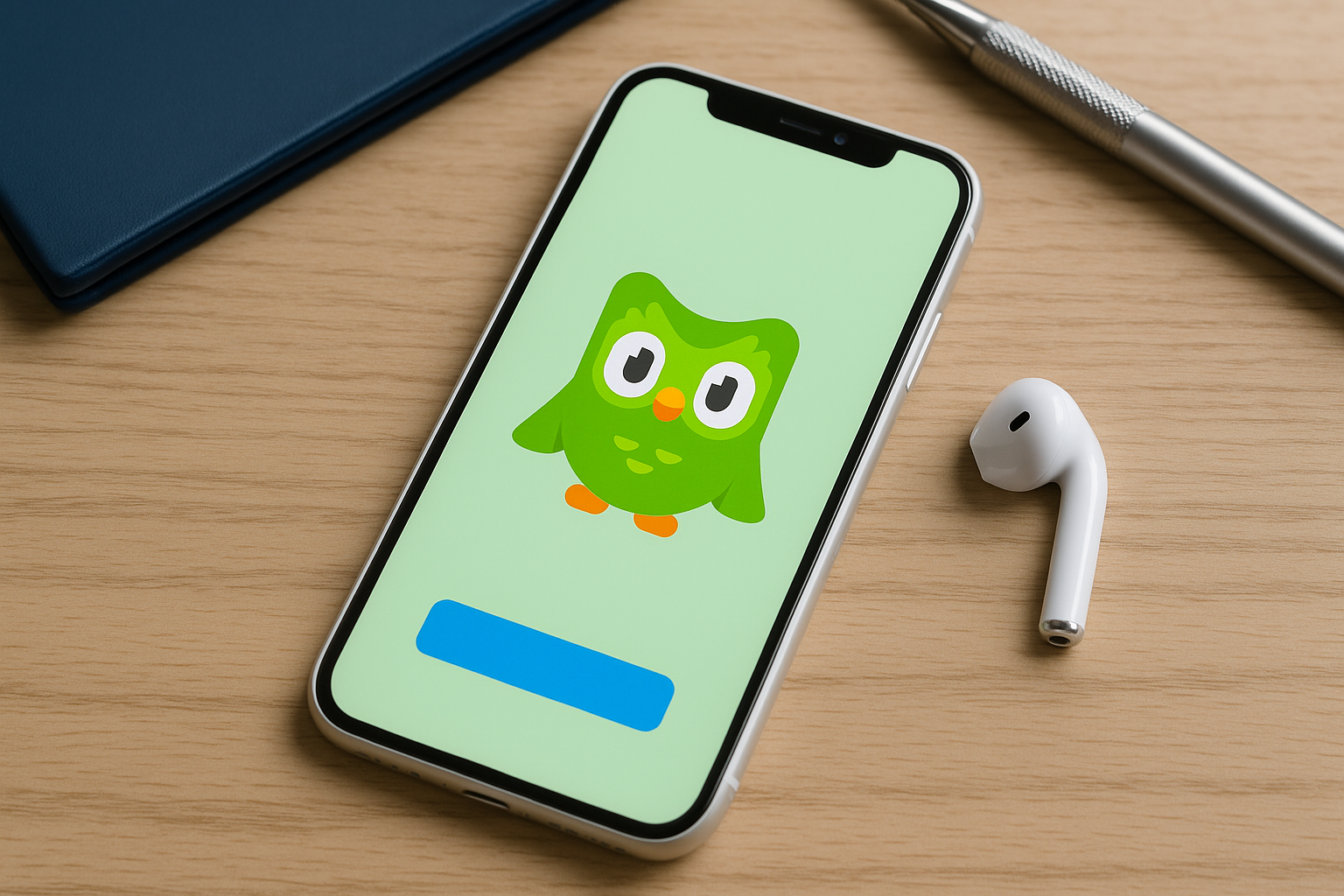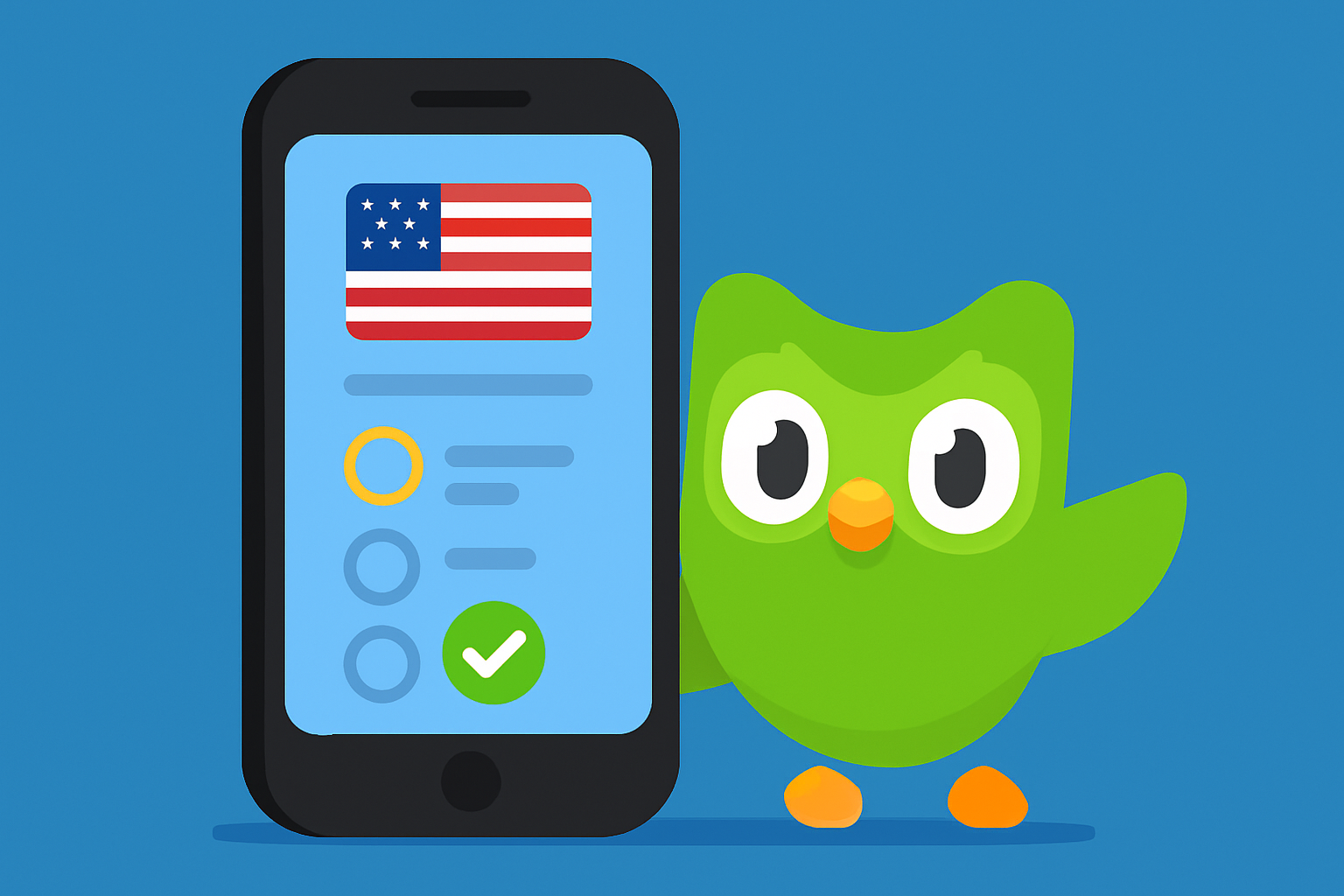Learning a new language has never been so accessible and fun. With advances in technology, language learning apps offer an interactive way to study, whether in your free time or during your daily commute. These apps are available both online and offline. Play Store as in App Store, allowing anyone to start learning in a practical and effective way.
The great advantage of using these apps is their flexibility. You can study at your own pace, repeat lessons as many times as you need, and even practice anywhere, which makes it much easier for those with busy schedules. If you're looking for a dynamic and accessible way to learn a new language, apps are an excellent option for getting started or improving your language skills.
Advantages of using apps to learn languages
One of the biggest advantages of using language learning apps is the variety of interactive features they offer. In addition to vocabulary and grammar lessons, many apps include games, quizzes, pronunciation exercises, and interactions with native speakers, making learning much more engaging. This facilitates knowledge retention, making the learning process more efficient and interesting.
Another benefit is access to customizable content. Most apps offer the ability to adjust study settings based on your language proficiency level, ensuring you're always challenged but never overwhelmed. With the ability to study anytime, anywhere, learning becomes a more fluid and natural experience.
5 apps to learn languages in a fun way
Duolingo
Duolingo is one of the most popular language learning apps. It offers short, interactive lessons that cover vocabulary, grammar, and pronunciation in a fun way. The app uses gamification to keep users motivated, with daily rewards and goals that encourage continued learning.
Furthermore, the Duolingo It's available in multiple languages and is ideal for beginners. Its spaced repetition system helps with vocabulary retention, and you can practice anywhere since the app is accessible directly from your phone. Play Store or the App Store.
Babbel
Babbel is another highly recommended app for learning languages, especially for those who already have a basic foundation. The app focuses on conversation lessons and offers courses tailored to your knowledge level. Each lesson is short and practical, ideal for those looking to learn more effectively and realistically.
Furthermore, the Babbel offers lessons on everyday situations, such as traveling, shopping, and speaking with native speakers. This approach makes learning much more applicable to real life, and the app is excellent for those looking for a quick way to learn a functional language.
Memrise
Memrise offers a fun and effective approach to language learning through native speaker videos and memory exercises. The app uses spaced repetition techniques and short videos to teach vocabulary and idioms, helping students become familiar with pronunciation and language usage.
Furthermore, the Memrise has a wide variety of languages available, and the ability to learn from native speakers makes learning much more immersive. The app is also available for download on Play Store and App Store.
Busuu
Busuu is an app that combines interactive lessons with real-life interactions with native speakers. The app offers an AI-powered learning system that personalizes lessons based on your skill level and progress. You can also correct other users' lessons and receive feedback from native speakers, significantly improving your communication skills.
THE Busuu offers classes for various levels, from beginners to advanced, and is available both in Play Store as in App Store, facilitating access for anyone who wants to improve their command of a new language.
HelloTalk
HelloTalk is a language exchange app that allows you to connect with native speakers to practice the language you're learning. It offers text chat, audio, and even video calls, providing a fun and practical way to improve fluency and listening comprehension.
With HelloTalk, you have the opportunity to learn directly from native speakers, which is a great way to familiarize yourself with informal expressions and everyday language usage. The app also allows you to exchange corrections with other users, promoting collaborative learning.
Features and Benefits of Language Learning Apps
These apps offer a variety of features that make learning more effective and engaging. Most of them use gamification to keep users motivated, as well as include writing, reading, speaking, and listening exercises. Some platforms, such as Busuu, offer interactions with native speakers, which provides a more immersive experience.
Furthermore, flexibility is one of the biggest advantages of these apps, as you can study at your own pace. Many apps offer quick lessons, perfect for those on a time budget. This makes learning a new language more accessible without compromising your daily routine.
Frequently Asked Questions
The time it takes to learn a language depends on your initial level and the amount of time you dedicate to studying. With consistent use of apps and daily practice, you can achieve basic fluency in a few months. However, advanced proficiency can take longer.
Yes, many apps offer a wide variety of languages to learn, from the most popular, like English and Spanish, to less common ones, like Arabic or Mandarin. However, availability may vary by app.
Most apps offer a free version with limited functionality, but also have paid plans that unlock additional features like advanced lessons, personalized feedback, and interactions with native speakers.
Conclusion
Language learning apps are powerful tools that make learning more interactive and accessible. With platforms like Duolingo, Babbel, Memrise, Busuu and HelloTalk, you can study in a practical and fun way, at your own pace and wherever you want. Whether you're starting from scratch or looking to improve your skills, these apps offer the flexibility and resources you need to achieve fluency in a new language.






